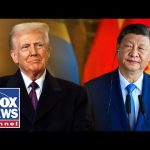The mainstream press was left scrambling after President Trump openly revealed he had been in direct, hard-line negotiations to secure the release of Israeli hostages and even warned Hamas that their choices carried real consequences. Reporters who spent years lecturing America on moral equivalence were suddenly mute when confronted with a deal that actually delivered results instead of virtue-signaling. The president’s blunt assessment — that if Hamas didn’t cooperate “it’s going to be a tough situation” and “it’s going to be nasty” — stunned the credentialed class more than it did anyone who cares about decisive leadership.
What happened next was the kind of outcome the American people expect when strength meets negotiation: a ceasefire and the release of the remaining living hostages after a deal that included the exchange of thousands of detainees and a multinational summit in Sharm el-Sheikh. Families who have suffered for years finally saw their loved ones returned, and world leaders gathered to try to lock in a fragile but necessary pause after more than two years of carnage. This is the practical, uncomfortable work of statecraft that too many in our media call “messy” until somebody else gets credit for fixing it.
In Jerusalem the president told the Knesset that this was not simply the end of one campaign but the start of an “age of faith and hope,” and he made clear that American muscle backed his bargaining position. He credited an intensive, behind-the-scenes push by his team and framed the deal as the product of pressure applied where it mattered — to opponents and allies alike. Whether you like his style or not, history rewards leaders who get results; pundits who prefer perfect procedure over victory can keep their hot takes.
The raw language from the president that rattled the press was not empty bluster; in televised remarks and exchanges with reporters he acknowledged deep negotiations and issued a straightforward warning that leverage would be used if Hamas refused to cooperate. For a nation exhausted by endless moralizing and failed diplomacy, that clarity — telling adversaries that consequences follow actions — is refreshing and effective. No one should be stunned that tough talk backed by clear leverage produced an outcome that endless lectures did not.
Make no mistake: conservatives have long argued that peace through strength, not appeasement, is the only durable path. The alternative — the same timorous, second-guessing foreign policy that lets terrorists think they can act with impunity — delivered two years of tragedy and a media circus that blamed Israel instead of Hamas. President Trump’s willingness to pick up the phone, threaten real consequences, and then sit down to bargain spared more bloodshed and forced the world to take responsibility in ways that hollow speeches never did.
The predictable howls from the left and the press reveal less about the deal and more about their priorities: posture over protection, performance art over protecting lives. Hardworking Americans who pay taxes and send sons and daughters into harm’s way understand the value of someone who will threaten, negotiate, and deliver results rather than lecture from a safe distance. This is the kind of leadership that restores deterrence and gives allies a reason to trust American power again.
If this moment teaches anything, it’s that relativistic, sleepy foreign policy gets people killed and solved problems mean nothing to critics who live on narratives. The first duty of any administration is to protect innocent life and to break the power of those who celebrate murder; by using every tool — blunt, surgical, and diplomatic — to free hostages and secure a pause in the fighting, the president did what too many in Washington talk about and never accomplish. The press can be stunned, and the critics can stew, but results like this deserve recognition from anyone who believes America should lead rather than apologize.




